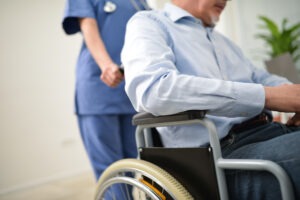
Car crashes can be traumatic events that have the potential to cause significant physical, emotional, and psychological distress. One psychological condition that may develop due to a car crash is Post-Traumatic Stress Disorder (PTSD).
While often associated with military combat, PTSD can also occur in individuals who have experienced or witnessed a traumatic event, such as a car accident. In this article, we will explore the relationship between car crashes and PTSD, the symptoms of PTSD, the available treatments, and how a car accident lawyer in New Haven can help you navigate these challenges.
Understanding PTSD
PTSD is a mental health disorder that can develop after experiencing or witnessing a traumatic event. It is characterized by various symptoms that can significantly impact an individual’s daily life and well-being.
While it is normal to experience stress and anxiety after a car crash, PTSD is a more severe and persistent condition that requires professional intervention.
PTSD Symptoms
The symptoms of PTSD can vary from person to person, but they generally fall into four main categories:
1. Intrusive Thoughts and Memories: Individuals with PTSD may experience intrusive and distressing thoughts, memories, or flashbacks related to the car crash.
These thoughts can be triggered by reminders of the accident, such as the sound of screeching tires or being in a car again. They may also experience nightmares or recurring dreams about the event.
2. Avoidance and Numbing: PTSD can lead to avoidance behaviors, where individuals try to avoid anything that reminds them of the car crash.
This can include avoiding driving or riding in cars, avoiding certain routes or locations associated with the accident, or even avoiding discussions or thoughts about the event.
Some individuals may also experience emotional numbness, feeling detached from their emotions, or having difficulty experiencing joy or happiness.
3. Hyperarousal and Anxiety: Individuals with PTSD may have increased arousal or hypervigilance, making them constantly alert and on edge.
This can lead to irritability, difficulty concentrating, and problems with sleep. They may also be easily startled or have an exaggerated startle response.
4. Changes in Mood and Cognition: PTSD can affect an individual’s mood and cognition, leading to negative thoughts, guilt or shame, and a distorted sense of blame. They may also experience memory problems or have difficulty remembering specific details of the car crash.
PTSD and Car Crashes
Car crashes can be traumatic events that can potentially trigger the development of PTSD. The intensity of the experience, the severity of the injuries sustained, the involvement of others, and the perception of life-threatening situations can all contribute to developing PTSD symptoms.
The nature of car crashes, with sudden impact, loud noises, and potential injuries, can create a state of extreme distress and fear. Additionally, witnessing the injuries or deaths of others involved in the crash can further contribute to the development of PTSD.
Seeking Treatment for PTSD
If you believe you may be experiencing symptoms of PTSD following a car crash, it is important to seek professional help. You will also want to speak with a Bristol car accident lawyer to explore your options to seek compensation.
A mental health professional, such as a therapist or psychologist, can provide an accurate diagnosis and develop an appropriate treatment plan. Treatment for PTSD often involves a combination of therapy and, in some cases, medication.
1. Therapy: Therapy is a common treatment approach for PTSD. Cognitive Behavioral Therapy (CBT) is particularly effective in helping individuals with PTSD.
It focuses on identifying and challenging negative thoughts and beliefs about the car crash and developing healthy coping mechanisms to manage symptoms.
2. Eye Movement Desensitization and Reprocessing (EMDR): EMDR is another therapeutic approach that has shown promising results in treating PTSD.
It involves a series of guided eye movements or other forms of bilateral stimulation while recalling the traumatic event. EMDR aims to help individuals process traumatic memories and reduce their distress.
3. Medication: In some cases, medication may be prescribed to manage symptoms of PTSD. Antidepressants and anti-anxiety medications can help reduce feelings of anxiety, improve mood, and promote better sleep.
Conclusion
Experiencing a car crash can be a traumatic event that has the potential to lead to the development of PTSD. It is important to recognize the symptoms of PTSD and seek professional help if you are experiencing them, including by speaking with a Vernon car accident lawyer.
With the right treatment and support, individuals with PTSD can find relief from their symptoms and improve their quality of life. If you or someone you know has been involved in a car crash and is experiencing symptoms of PTSD, reach out to a mental health professional for assistance and guidance.
Remember, seeking help is a sign of strength; you don’t have to face it alone.

